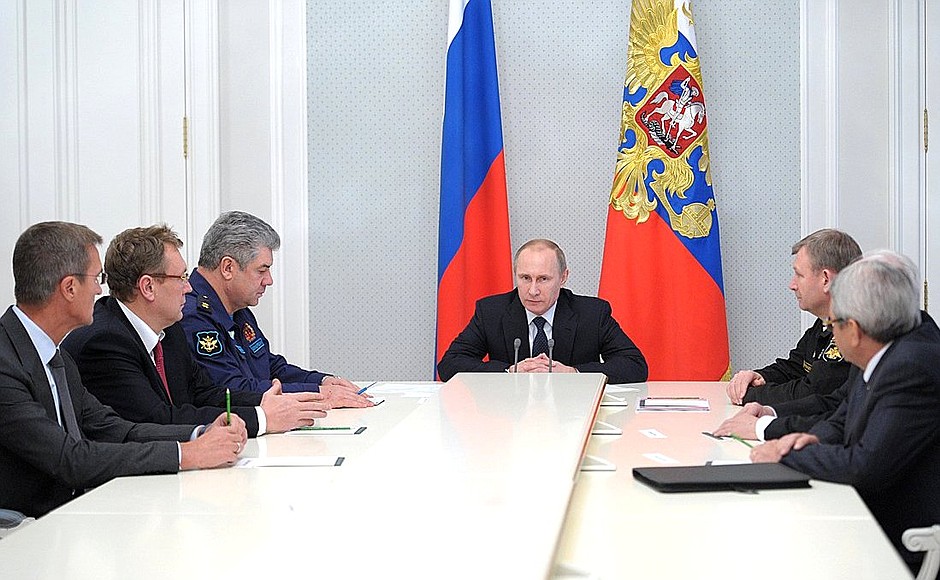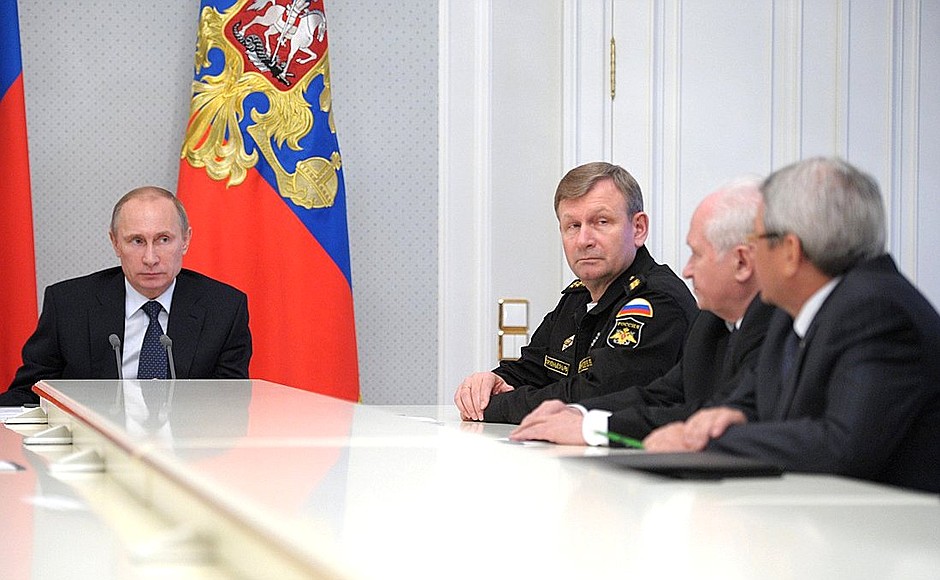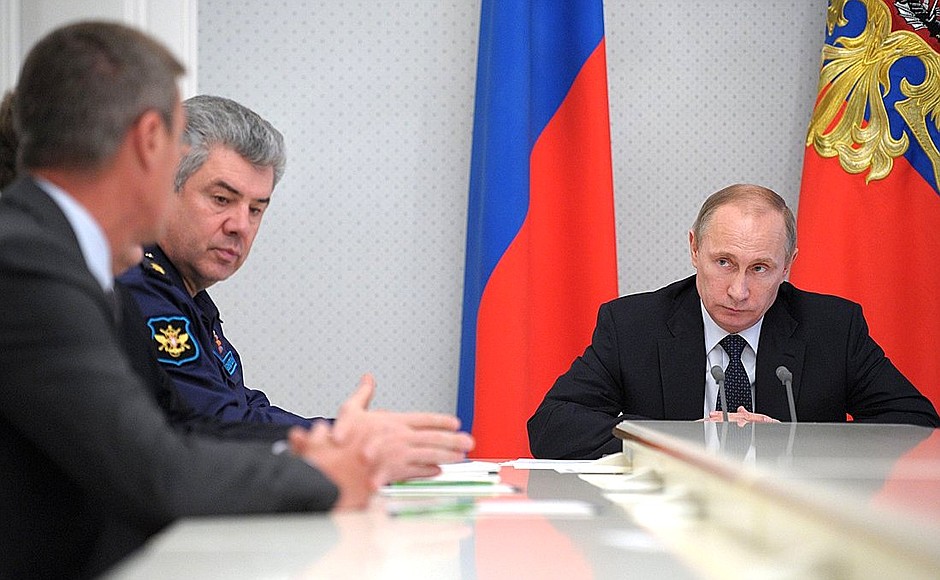President of Russia Vladimir Putin: Good afternoon, colleagues.
We are here today to discuss high-precision weapons. It has been well-known for a long time, and not just among the specialists but among the general public too, that high-precision weapons are becoming an increasingly important factor in non-nuclear deterrence, and perhaps even one of the most decisive factors.
Modern high-precision weapons integrate intelligence, guidance, delivery and destruction systems, and it is all of this combined that makes them so highly effective. The degree of precision and power of today’s high-precision weapons makes them essentially an alternative to nuclear weapons. In some of their parameters they are quite simply equal to nuclear weapons in their effectiveness.
We have already begun supplying these kinds of weapons to our Armed Forces. Let’s take a more detailed look today at the work in this area and what still needs to be done to give this work an added boost.
General DIRECTOR OF RADUGA STATE MACHINE BUILDING DESIGN BUREAU VLADIMIR TRUSOV: Mr President, colleagues,
I can report that we have concluded all contracts this year for manufacturing high-precision weapons and have already begun delivering them to the Armed Forces.
Most important of all is that these contracts are essential for the companies and their employees, because they are what keeps the companies busy and pays the workers’ wages. They secure the future too, as they are contracts concluded for a three- or five-year period.
We also signed three contracts for further developing weapons delivered earlier. This will help us to obtain new results and continue our work on weapons to be delivered after 2015.
General DIRECTOR OF TACTICAL MISSILES CORPORATION BORIS OBNOSOV: Mr President, colleagues,
To Mr Trusov’s words I will add only that this year has been very successful for us in terms of the contracts signed, and we now have set volumes of work for the next three years.
Preparations for series production are also going very well. We are feeling the benefits of the Federal Targeted Programme for Developing the Defence Industry. Were it not for this programme we would probably have difficulty with the volumes required. Our volume of work has doubled since last year, for example, and we expect it to be 3.5 times higher next year.
Vladimir PUTIN: How much did you receive under the defence industry development programme? Essentially, we are talking here about money allocated to modernise and re-equip your own facilities.
Boris OBNOSOV: The programme allocates a total 64 billion rubles [around $2 billion] for the corporation as a whole through to 2020.
Vladimir PUTIN: How much is your own company getting?
Vladimir TRUSOV: We are receiving funding of 5 billion rubles through to 2020 for our company alone.
Vladimir PUTIN: Is this for re-equipping your facilities?
Vladimir TRUSOV: Yes, it’s for modernisation and new equipment. This year, we have received around 500 million rubles.
Boris OBNOSOV: Mr President, I want to thank you because the latest presidential executive order on expanding the corporation has meant that we have now been joined by very solid companies, such as Production Association Strela in Orenburg.
Their facilities were running at 40-percent capacity, but they are now working at full capacity on orders. This is creating new jobs and gives the company confidence. It is the main enterprise in Orenburg. We are seeing the same thing practically all around Russia now.
Vladimir TRUSOV: At any rate, with Strela now part of the corporation, Raduga will be able to double its supplies next year.
Vladimir PUTIN: Is the equipment you are receiving modern and does it meet your technology requirements?
Vladimir TRUSOV: Yes, it is.
Vladimir PUTIN: Good, then let’s discuss all of this in more detail.
<…>


